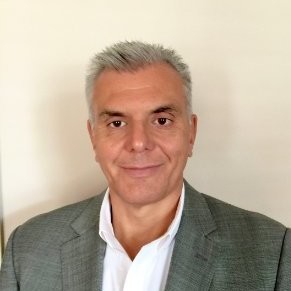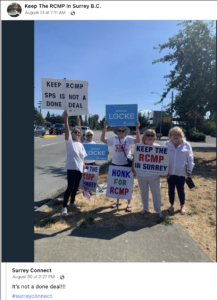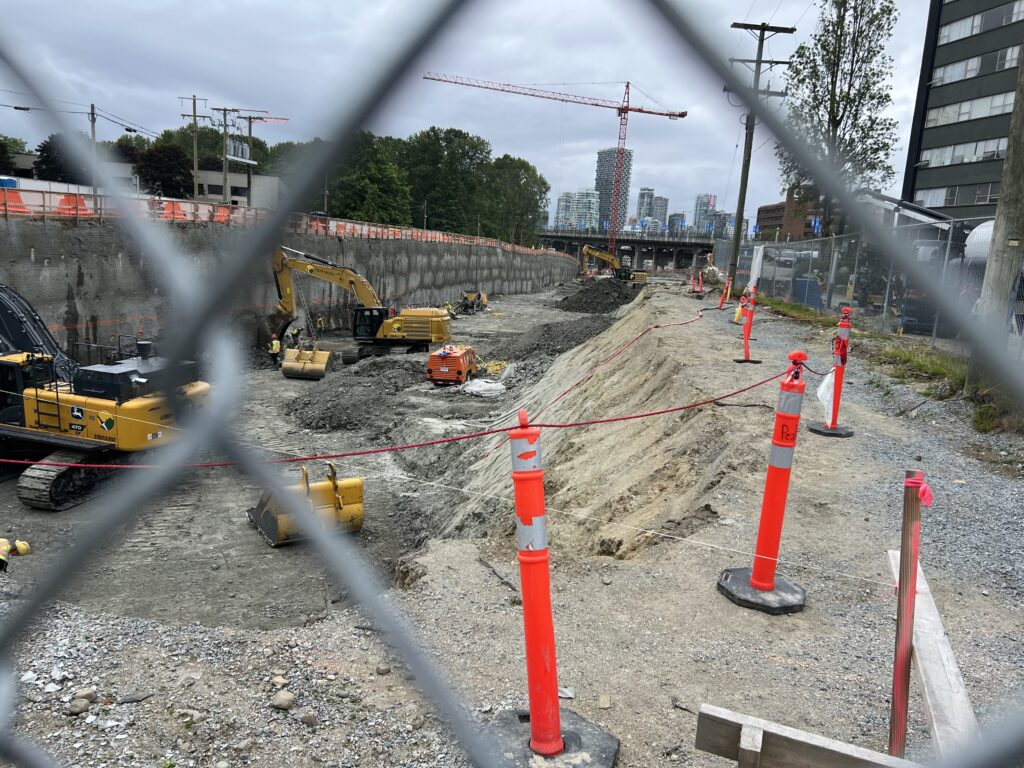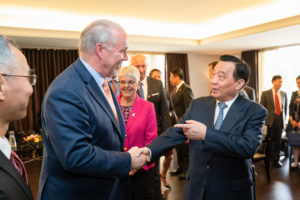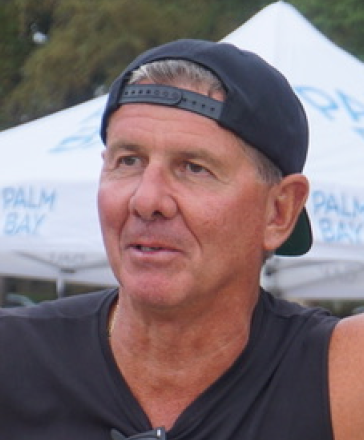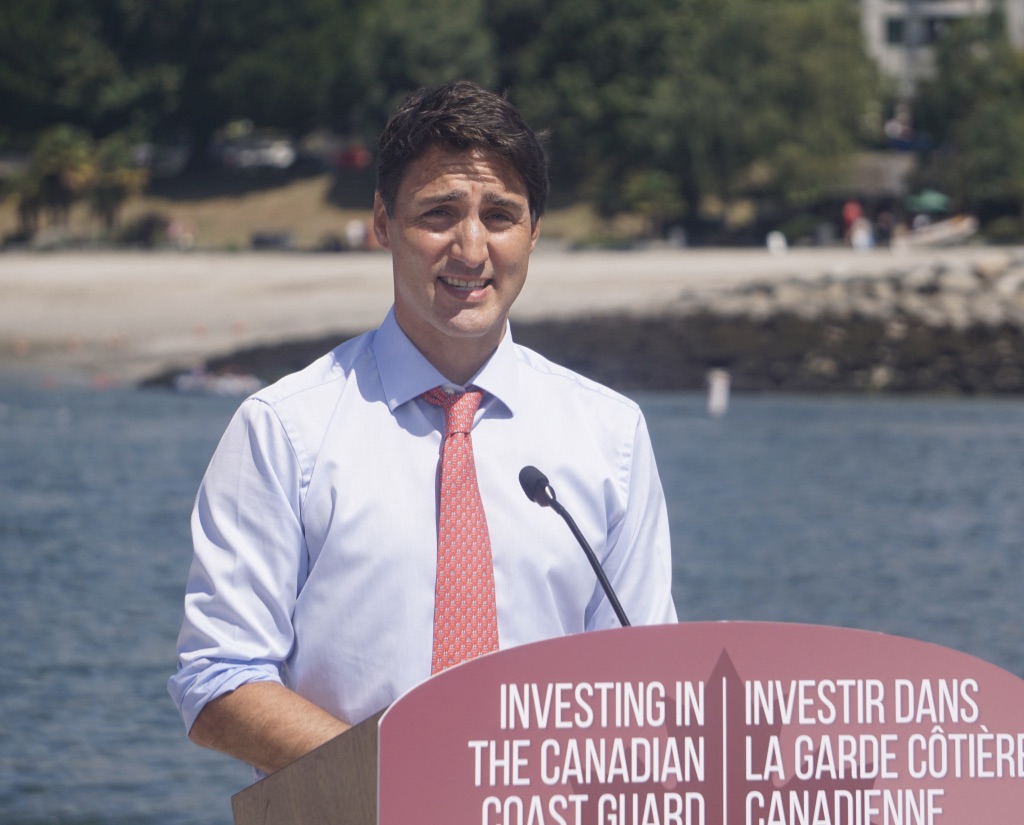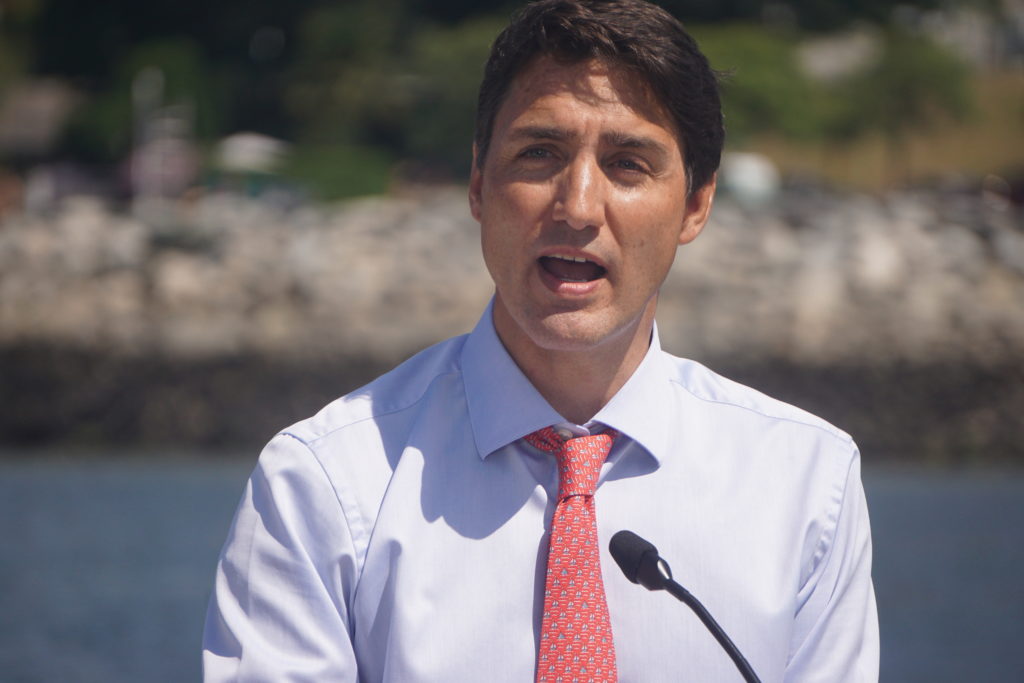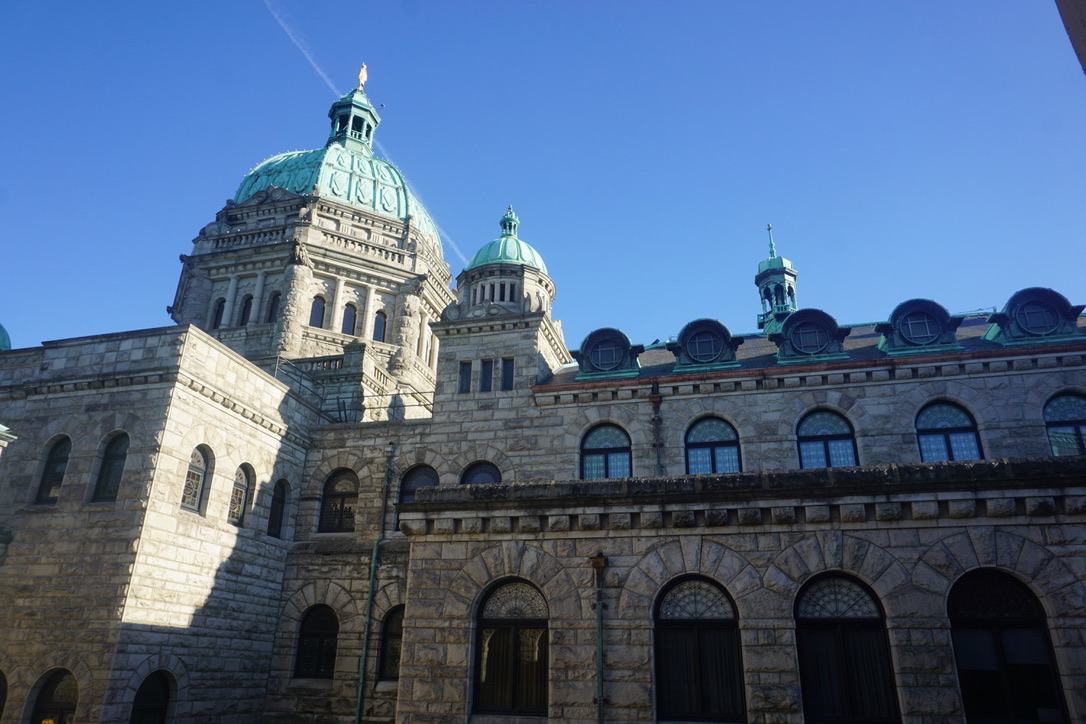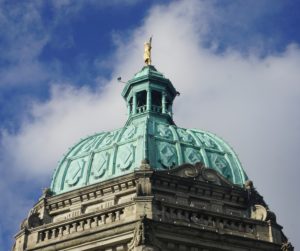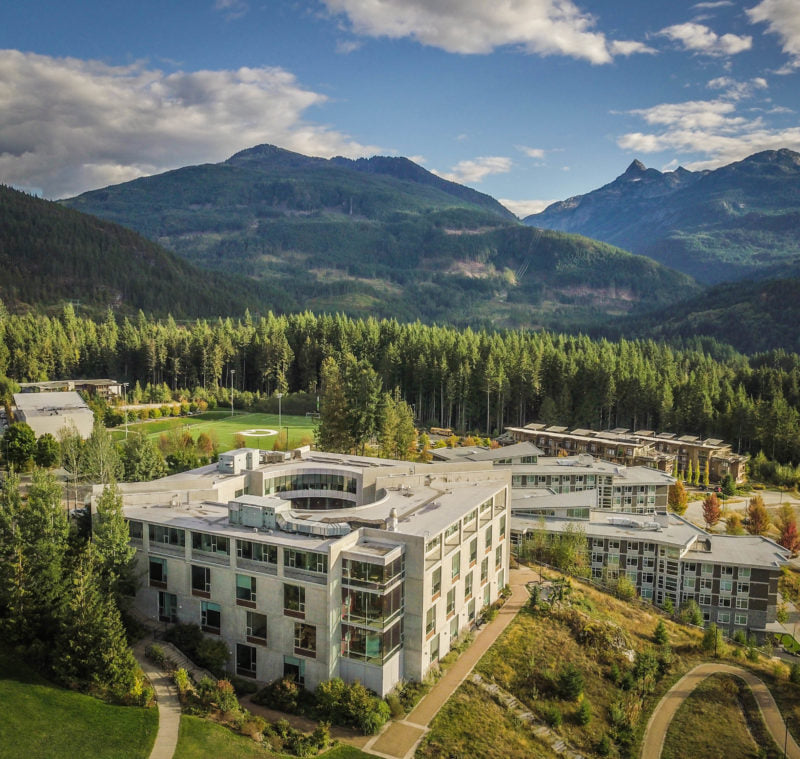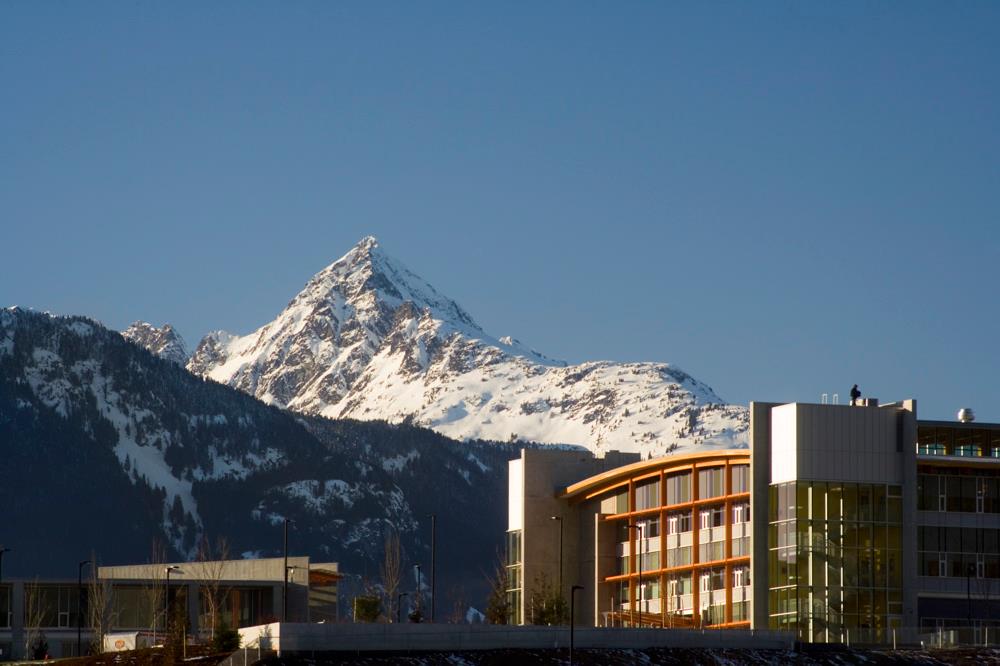Review: The future is Sphere — biggest bet in Vegas revolutionizes the concert experience, with help from Canadians
Bob Mackin
Still haven’t seen the Sistine Chapel, but staring at other, modern ceilings has brought me great wonder and joy.
As a schoolchild, it was the Planetarium’s Star Theatre, with robotic projector Harold, under the ceiling of the venerable H.R. MacMillan Space Centre in Vanier Park. Field trips about the solar system and space travel, the Pink Floyd laser light show and even a 54-40 record release concert left me speechless.

U2 surrounded by Nevada Ark inside Sphere on Sept. 29 (Mackin)
Omnimax, a Canadian innovation, was a teenage mindblower that I discovered on a family trip to the giant “golf ball” at Caesar’s Palace in Las Vegas. When Vancouver got its shiny silver geodesic dome in 1985, I was among hundreds of high schoolers who volunteered to wave flags for the one-year countdown to Expo 86 at what is now Science World.
Even when the newly lit roof is fixed and the theatre reopens in East False Creek, it won’t hold a candle to the biggest new bauble on the Las Vegas skyline, which I experienced on opening night on Sept. 29.
A band from Dublin that once called itself The Hype came to celebrate 47 years together by creating more hype. U2, even with drummer Larry Mullen Jr.’s temporary replacement Bram van den Berg, and the band’s home for at least 25 “Atomic City” shows lived up to the hype. And then some.
I’ve attended hundreds of concerts, indoors and outdoors. In bars, theatres, hockey rinks, football stadiums, parks, beaches, mountaintops and valley floors. But Las Vegas’s newest “showroom,” the $2.3 billion, 18,000-seat Sphere, redefines concerts.
The experience began next door in the Venetian Resort, at the two-floor Zoo Station: A U2:UV Experience museum, theatre, lounge and gift shop celebrating U2’s pioneering 1992 and 1993 ZOO TV tour that, oddly, didn’t sell out its stop at the Silver Bowl stadium.
“The future of live entertainment, or at least a portion of it, will be more and more immersive. Fans are looking for more backstory, more engagement and beyond just sitting in the seat and attending the show,” said Andrew Luft, vice-president of partnerships at Vibee, the Live Nation-founded destination experience company. “They want to be consumed by everything they can.”
Sphere is all-consuming. The world’s biggest spherical building, at 111 metres tall and 157 metres at its widest. You could hypothetically squeeze the Hotel Vancouver inside. The Exosphere, as the exterior is called, was designed and manufactured with Montreal’s SACO Technologies. It’s covered by 1.2 million LED “pucks” capable of displaying 256 million colours. Ad space sells for $450,000-a-day. On the eve of Friday’s concert, between acting as a giant pumpkin or the full moon (under the real harvest moon), ads were already in rotation for ABC’s Dancing With the Stars and the new Trolls movie.

Las Vegas Sphere, Sept. 29, 2023 (Mackin)
Inside, the 160,000 square foot, 180-degree wraparound screen with 16K x 16K resolution pairs with a 170,000-speaker, 3-D audio system designed by Berlin, Germany’s Holoplot.
A prototype opened last year in Burbank, Calif. A second Sphere is planned for London. If smaller ones don’t mushroom like the Omnimaxes and Imaxes did in the ‘80s and ‘90s, then copycats are inevitable. Venues, promoters and ambitious artists will be under pressure to meet the Sphere-driven demand for optimal audio and video. Expect the concert-going experience to be vastly different by the end of the decade. A rising tide lifts all boats, as they say.
When the venue opened after 6 p.m. — two hours before scheduled showtime — ticketholders roamed the atrium and rode the escalators, bathed in the cool blue and violet hues of spherical light fixtures, soothed by ambient sound textures from U2’s 1991 “Achtung Baby” sessions. In the centre, a rotating “U2:UV Achtung Baby” light sculpture became a selfie pit stop.
Inside the amphitheatre, a sense of awe and anticipation for the new take on U2’s avant-garde tour.
Thirty yeas ago, cubic video walls and TV screens of multiple sizes flanked the stage, backlit by the headlights of suspended East German Trabant cars. This time, deceptive minimalism. The stage was a giant turntable at the foot of the 76 metre screen that appeared like the walls of a subway tunnel until the light broke through early in the opener, “Zoo Station.”
Industrial Light and Magic, which counts Vancouver among its six studios, helped bring the spectacle to life. During “Even Better than the Real Thing,” the screen became the canvas for Toronto-raised Marco Brambilla’s kinetic, kaleidoscopic tribute to Elvis Presley, “King Size.” Later, it was Es Devlin’s “Nevada Ark,” a collage of dozens of the state’s endangered species in all their glory, that appeared covered every inch of the screen during the climactic “Beautiful Day.”

U2 debut “Atomic City” at Sphere in Las Vegas on Sept. 29, 2023 (Mackin)
For the two hours in between, the screen displayed flickering embers, a flag of fire in the night sky, a flag of smoke during a daytime scene, a multitude of insects at dusk and aurora borealis. The Las Vegas skyline from the perspective of Sphere looked deceptively live.
As an usher asked fans to sit amid the “Rattle and Hum” acoustic interlude, a technician strolled the aisle past my upper level seat eyeing a diagnostics dashboard on his open laptop, ensuring everything was just right.
Ironically, one of the most-stunning scenes didn’t involve the screen at all. It was the projection of the band, including close-ups of instruments, onto the turntable stage during “Acrobat,” the penultimate song on “Achtung Baby,” and 15th of the night’s 22-song setlist. “You can dream, so dream out loud…” Bono sang over the Edge’s caterwauling guitar.
As the historic opening night wound down, Bono gave special praise to James Dolan, the Madison Square Garden Entertainment boss behind the Sphere dream. One of the biggest bets ever made in Vegas.
“You’re one mad bastard,” he said. “Thank-you for this wondrous place.”
Support theBreaker.news for as low as $2 a month on Patreon. Find out how. Click here.
Bob Mackin Still haven’t seen the Sistine Chapel,









